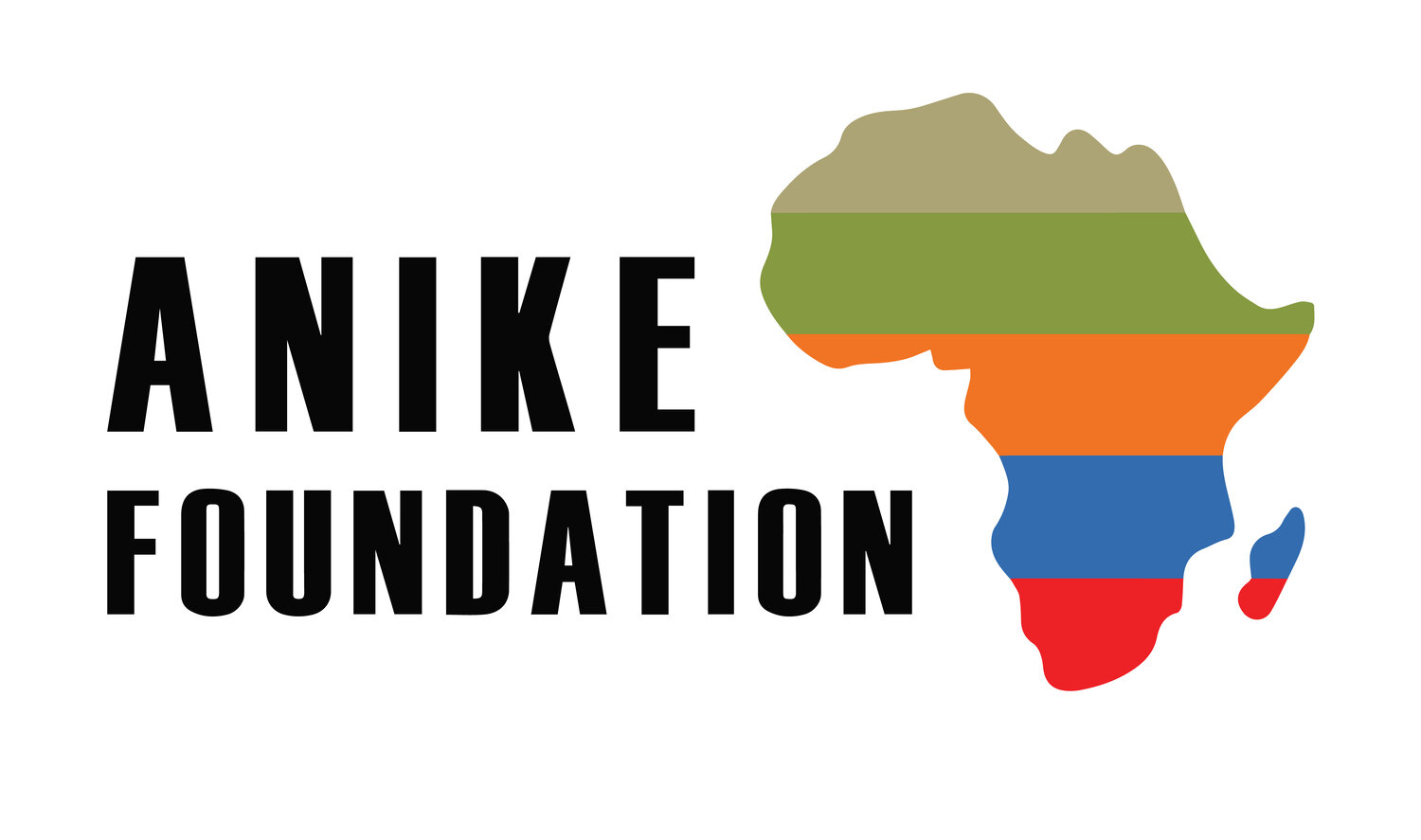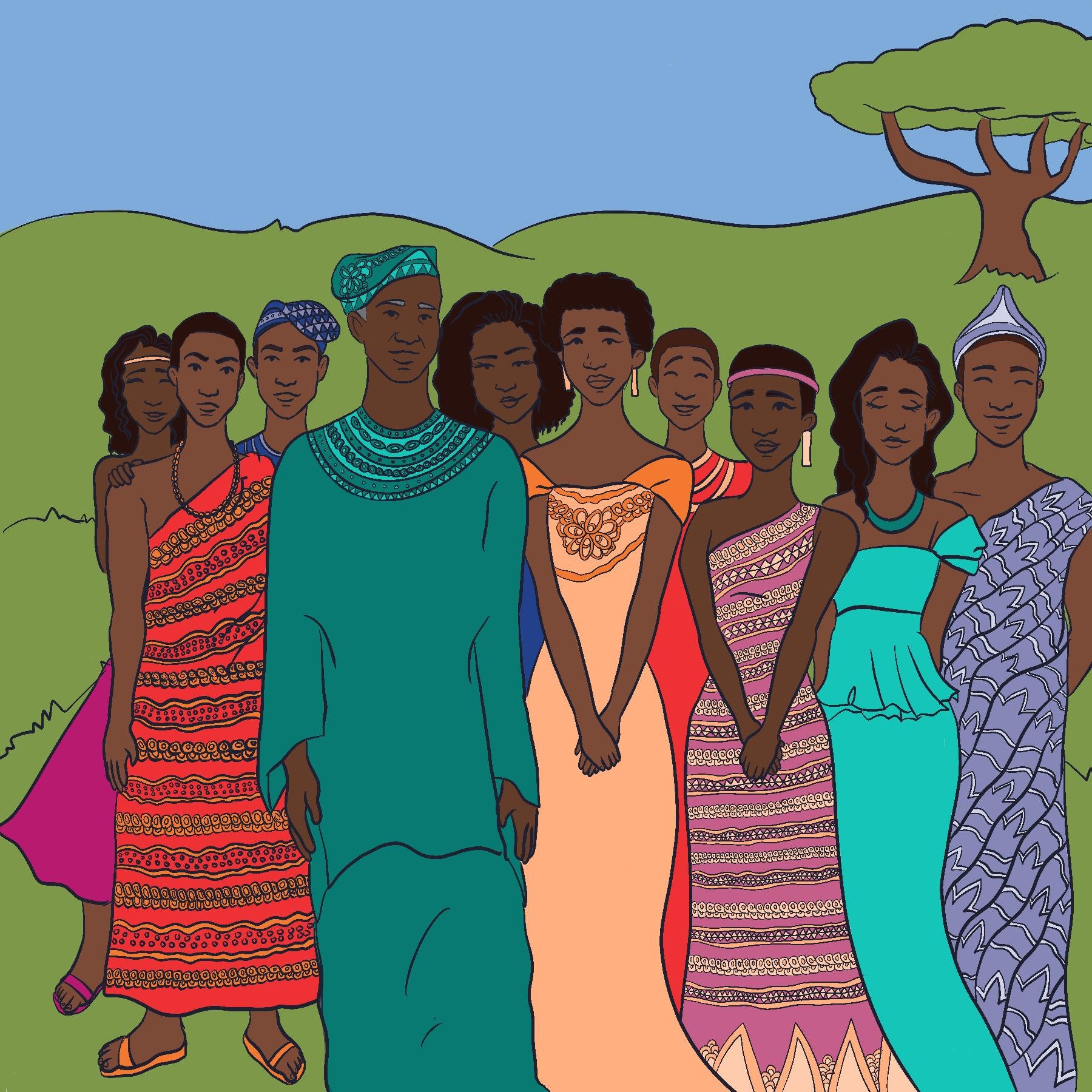Copyright © Anike Foundation
The Family
A Folktale from Northwest Cameroon, West Africa
Once upon a time, there lived a large family of many siblings who had all manner of diverse character traits humanity could ever imagine. They always moved in pairs, given their number. They had such a rapport with one another that none could come between them, whether in good or bad times; through thick and thin, they learned to stick around for each other.
They lived during the colonial period, characterized by high moral and intellectual standards, and class distinction, where the rich got richer and the poor poorer. This social gap only grew wider as time went by. The peculiarity of this family was its size. They were known by a few rich folks but more widely amongst the commoners. Having a large family at the time was perceived by the upper class as a characteristic of the poor.
They were considered commoners and peasant farmers, who spent more time in activities considered to be solely for the ordinary man and further characterized by high birth rates. Often these children served as work force in the farms, during times of war as soldiers, and as collateral for unpaid debts and pledges.
Sixteen children were born to John Benedict Tates and Mary A. Tates, who belonged to the middle class.
John Benedict was an outstanding craftsman who acquired his renown through the arts and was known amongst aristocrats as well as commoners.
Wherever any of the children went, people referred to them as “the family” or as “society in miniature” instead of going by the Benedict name legacy that their father left behind after his passing.
Peculiar to the “Tates” was changing their business name from Benedict to Tate. This they did to represent the fact that each of them was an embodiment of an important trait in the human life, whether it be a flaw or a strength, within the context of avarice, hate, materialism, ego, love or wisdom, to name a few.
They didn’t leave others indifferent wherever they passed. Instead, they ensured that people took notice of them, especially those who hadn’t heard about them. The decision to change the legacy that John Benedict had worked so hard to raise was done collectively so that each person could be represented in the newly formed company, named “The Tates.”
The day usually started with the eldest son, “Dictate,” seeking to order everyone around as a means of making his position as the eldest son known and to attempt to make everyone to do things his way. Such orderings usually enraged “Irritate,”
who got angry at the slightest instruction because he, like his brother, also liked things done his way.
The twin sisters “Devastate and Agitate” were known for their troublesome and disruptive nature by the other siblings in such a manner that one would think they wanted the ruin of all, given that they always connived together.
The outcome would usually stir up a fight or attempt to make void any constructive ideas for the continuity of the family business.
The triplets “Vegetate, Hesitate and Mutate” often put on a reluctant and indifferent attitude that wasn’t quick to adapt to any changes made in the business.
They were of the opinion that things should remain as their father had left them. They thought together,
“Why stress to change anything?”
Potentate, being the Benjamin who knew the extreme love of her parents for her, considering she was the most pampered of the children, thought that, as her name, “Potentate” implied, she should rule over everything and her voice should be heard because of her witty ideas. She considered herself the “queen” of the Benedicts, or should I say, “The Tates.”
Imitate and Mimitate (also nick-named “Mimic”) understood just how to swap modes, going by the person who at the end of the day led the siblings as the occasion presented itself. Possessing no stable opinion of their own, coupled with indecisiveness, they followed the person who oftentimes won at the end of the day irrespective of the decision, whether right or wrong.
In summary, each person’s trait, once put together with the rest, served a great purpose when they all acted for the common good of all in unity, thereby complementing one another in strength.
Cogitate and Meditate, nick-named “the twins of wisdom” as they were very reflective, spoke with great wisdom in few words, which often calmed down the tensions amongst them. They were of vital importance to the family, being the third and second to the last children of the Benedicts.
After listening to the wisdom of the twins, Rotate knew how to turn things around for the better, reminding each of their uniqueness and participation no matter how small. It was significant for the furtherance of the enterprise and the family at large, nothing taken for granted.
At the end of the day, it was Facilitate, Necessitate and Orientate who always related everything in such a manner that made the case for cooperation amongst the siblings.
Facilitate made it easy for everyone to be happy to disagree on lighter issues in order to agree on the weightier ones.
In their unity in diversity and their disagreeing to agree, they loved each other and valued the strength and uniqueness of each, bearing in mind that, in times of adversity, each looked out for the other.
Eventually they learned after a tough time to value each other rather than magnify each other’s faults based on who didn’t do what or what whosoever did. They learned to minimize the lesser and insignificant things and to emphasize the major things together.
In the end, the Benedicts, now changed to the Tates, prospered all the more and stood the test of time, emerging into the upper class of society as they now understood the following:
“United we stand, divided we fall.”
The story of the Tates became a legend among the Bafut people in colonial Cameroon.
Love our African folktales? Donate now to support our work.
We need your support to bring you more stories like this and carry out our education projects in Africa. Please make a donation today to allow us to continue this important work. Thank you for your support!






















